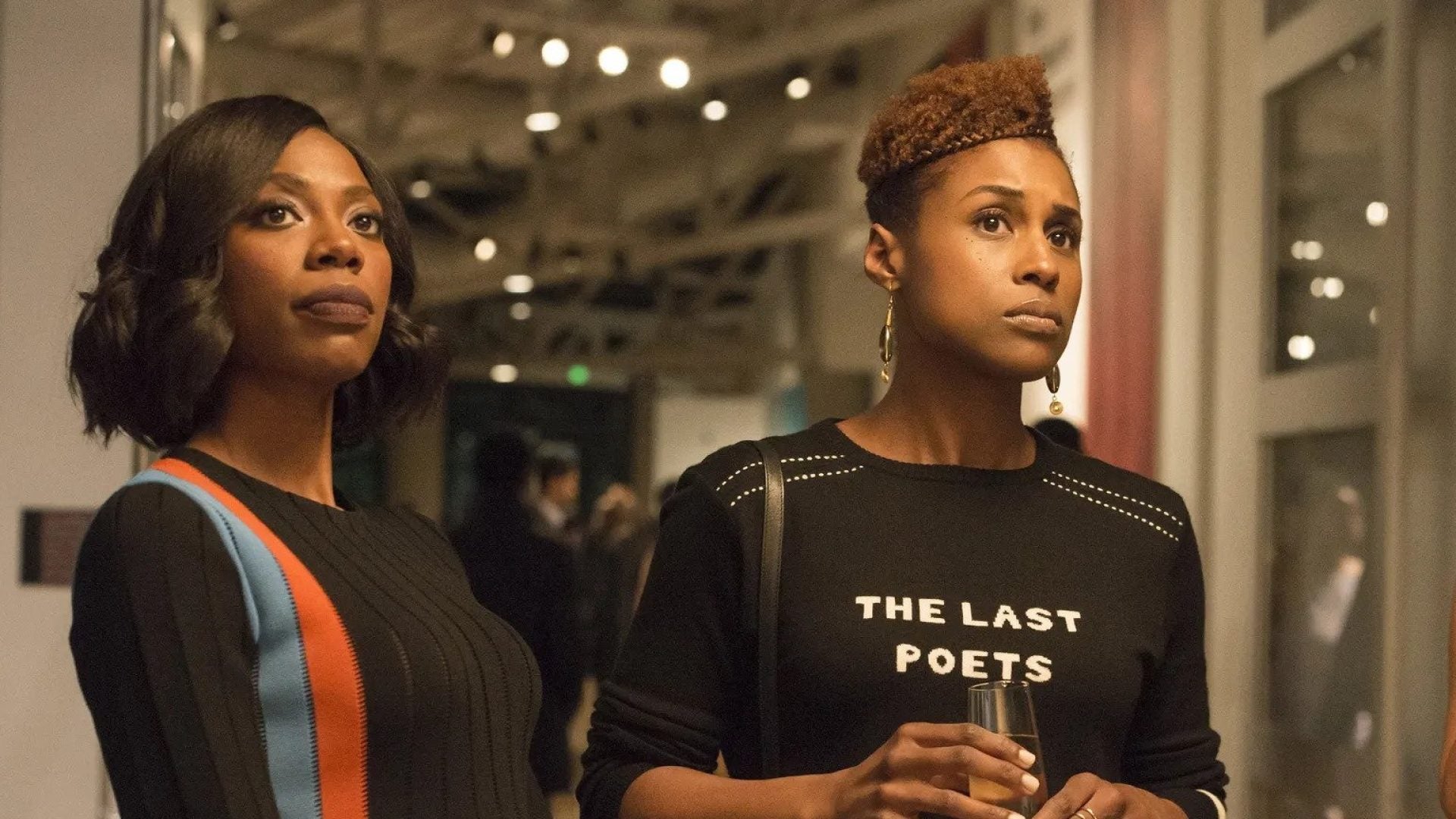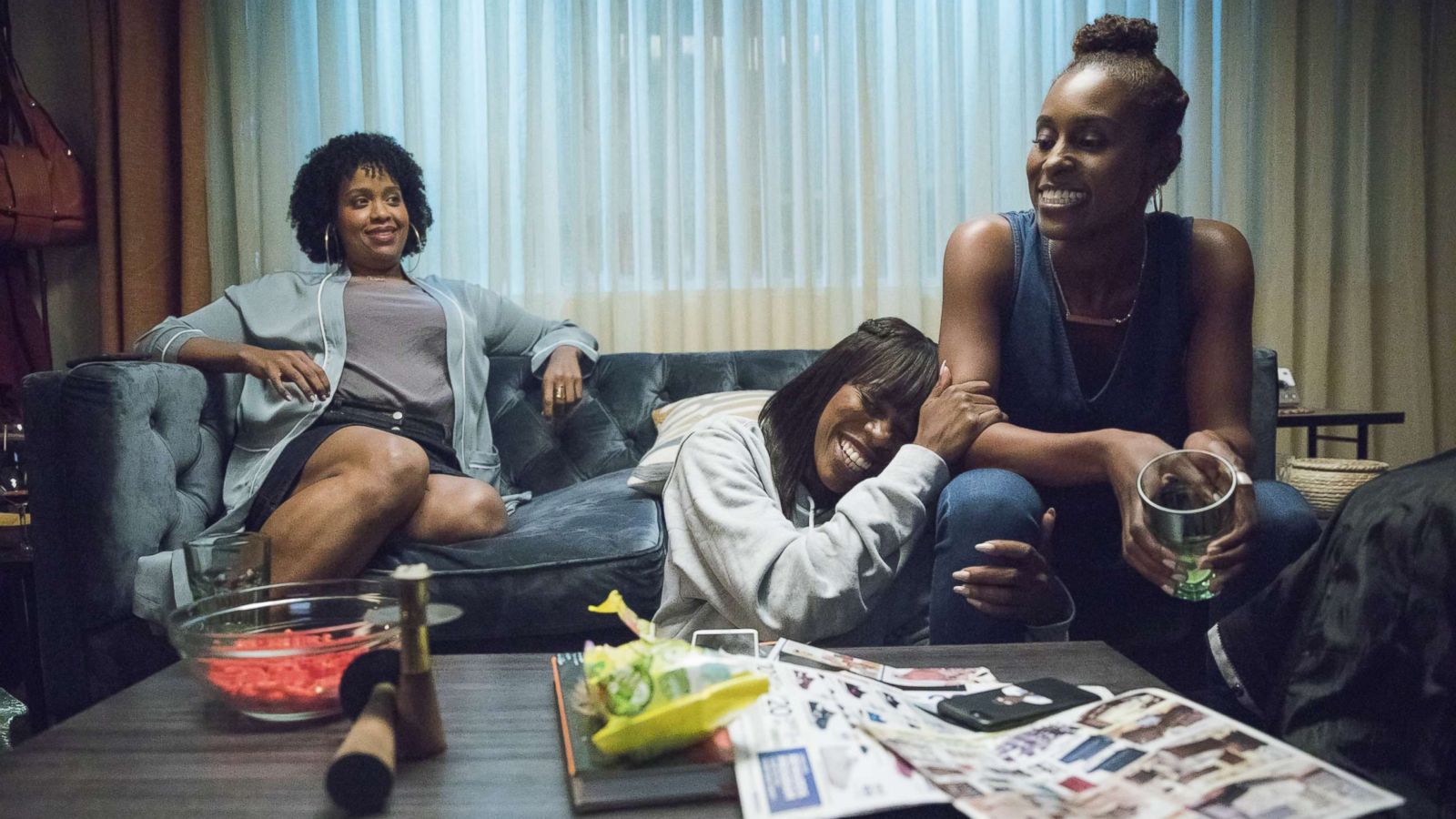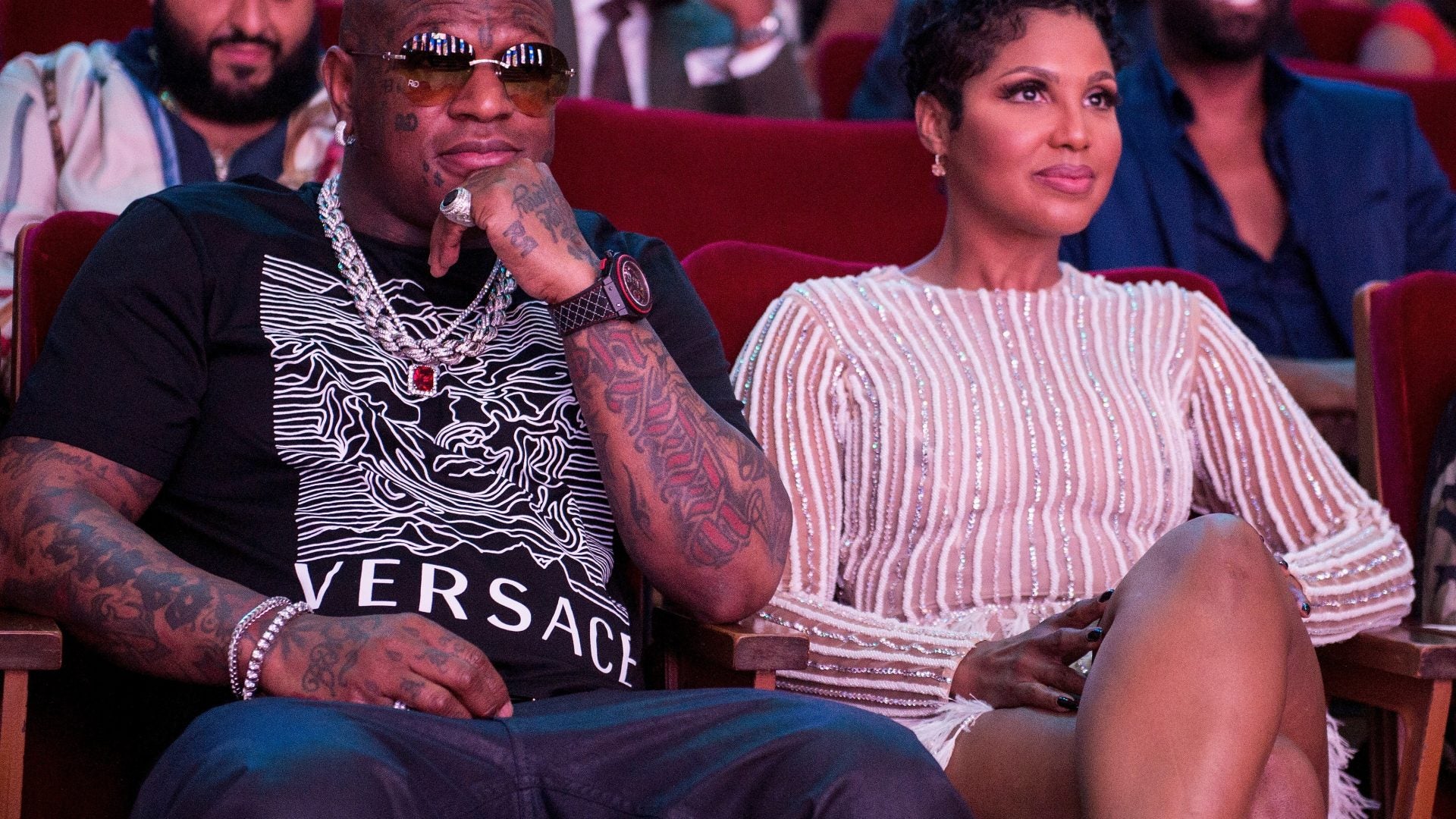
October 9, marks the seven-year anniversary of Insecure, the comedic brainchild of Issa Rae that divided viewers and brought them back together all at once, spawning endless discourse and Twitter think-pieces on the fictitious professional and personal woes of our beloved protagonist and her crew.
Whether you were team Lawrence, Issa, Molly or none of the above—Insecure regularly pulled out some of the hottest takes from viewers. Beyond providing us with humorous scenarios and infectious raps, Insecure raised a mirror to the very real concerns plaguing many late-twenties-to early-thirties Black professionals learning how to live, work and thrive while maintaining friendships and some modicum of sanity. But a lot can change in seven years, and with the show recently making its way to Netflix, many O.G. viewers are giving the show a rewatch and finding that it hits a bit differently years later.
Whether it be newfound insight regarding Molly being a lousy friend, clarity on the true depths of Lawrence’s pitifulness or a renewed perspective on Molly’s fling that she shot down after learning more about his sexual orientation. The show has become relatable in a whole new way.
“I remember Molly really liked this guy, but he expressed that he was bisexual, and I have not experienced that until I came to L.A.,” says Corryn Hurrington, a 31-year-old NFL operations manager from Maryland, currently living in Los Angeles.
“I was like, this is such an Insecure plot twist. Like, what?,” she says. Dating woes were the name of the game for Issa and friends, and Hurrington says since moving to the city the show was set in, she can relate to the cavalier nature of West Coast men in a way she didn’t fully grasp at 24.
“Men in general are a little bit more non-committal here, which is like a constant trend on Insecure. Especially in Molly’s dating life,” says Hurrington.
Beyond the inconsistency of men, however, Hurrington says she doesn’t have much in common with Molly at all. In fact, upon her rewatch, her dislike for the legal contessa has intensified.
“[At first] I thought that she changed or progressively got worse but when I rewatched the first season, she was always kind of self-absorbed and a little bit of a hater,” she says, noting Molly’s reaction to Issa’s performance of “Broken Pussy” in the second episode of season one.
“Everyone thought it was so funny and cute, but Molly was sitting there annoyed because she felt like this night was supposed to be about her,” she says, explaining that watching it back, she thinks signs of Molly’s faults were present from the beginning. “Like, was it really that deep?” she says.
Her allegiance to Issa isn’t that surprising, considering she “sees a lot” of herself in Rae’s character, save for a few key details. “People always say that I remind them of Issa Rae because I’m a little bit goofy and have a dry sense of humor—minus the fact that she was very unsure with what direction she wanted her life to go in,” says Hurrington.

These moments of uncertainty, however humbling, were pivotal for the show’s progression and left many fans rooting for Issa to get it right. Some even felt inspired by her tenacity in the face of numerous setbacks.
“Even though Issa wasn’t necessarily in a good place, it was aspirational to look at these characters who were much older than me at that time,” says Kiersten Brydie, a 29-year-old tech sales consultant and wellness influencer. “It was like looking at what life could be like if I went a certain path,” says Brydie, who had just graduated college when the show premiered.
“I was still trying to figure out what I want to do with my life, so almost a complete 180 to where I am now,” says Brydie.
It may have taken Issa a few tries to get it right, but her commitment to fusing her passions with her career had a lasting impact on Brydie.
“That was really inspiring to me because I work in tech sales but I also am building myself up on the side as well through teaching yoga and pilates and creating content around wellness,” she says.
And now, working as a young professional herself, she has a greater appreciation for Molly’s career plight as well. “When I first watched it, I definitely wasn’t able to see Molly’s perspective,” says Brydie, referring to our favorite lawyer’s season three arc when she made the switch from her predominantly white law firm to a Black practice and had a hard time navigating the shift in culture. “Now trying to be at the top of my professional game and trying to move through life — it’s a very different experience watching her,” she adds.
While her perspective on Molly’s propensity for workplace nagging may have shifted, she is still standing ten toes down in her support for Issa and Lawrence as a couple. “I was very much team Issa and Lawrence. And I still am. So I was rooting for them always,” says Brydie.
For others, their rewatch has exposed just how incompatible the show’s primary coupling was. “When I first watched the series, I was happy to see Lawrence and Issa get back together. But now, rewatching it, I wish they would have just went their separate ways,” Jenae Mims, a 28-year-old talent relations coordinator in Los Angeles, tells ESSENCE. It’s no beef towards either character, though. She just wishes they made different choices.
“I think they both grew so much individually and I wished I would have seen them end up with two different people at the end,” says Mims. This perspective is partially influenced by her own experiences as she says she was in a similar entanglement seven years ago and can relate to Issa’s POV. “[During the first season] I wanted my own relationship to work so badly, and I felt very comfortable in it, but I was also curious about the possibilities of what it would be like to be single and alone,” she adds.
She may resonate with Issa the most, but in recent years, she has found herself understanding Molly’s work-centric behaviors more and more. “Now, I can also see myself relating to Molly in some ways with how she goes about putting her career before men,” says Mims.
The final episode aired in 2021, but even in the short two years since, some women say their perspectives on topics are still evolving, namely one of the most controversial plot points of the entire series—Condola’s pregnancy. “She was not wrong for keeping the baby, especially with how her dating life was going,” says Hurrington, who was team “keep the baby” from the beginning. But as the passage of time makes her increasingly aware of her own reproductive clock, she has a newfound appreciation for her decision. “Dating is already hard enough; we’re only getting older, and so are our reproductive organs, and there’s never gonna be a “perfect” situation, honestly,” Hurrington continues.
Ultimately, no matter your opinion on the status of Condola’s womb, Issa and Lawrence’s “will they, won’t they,” trope or Molly’s career and allegedly broken nether regions, Mims believes Insecure imparted a unique lesson upon each viewer that can be carried over into a myriad of life arenas.
“Insecure highlights that we are all going through our own personal lives and sometimes the decisions we make may affect our friends, relationships or family in a negative way–-even if we don’t mean to. But we have to allow grace for people to make mistakes so that they can grow and be better,” Mims concludes.







